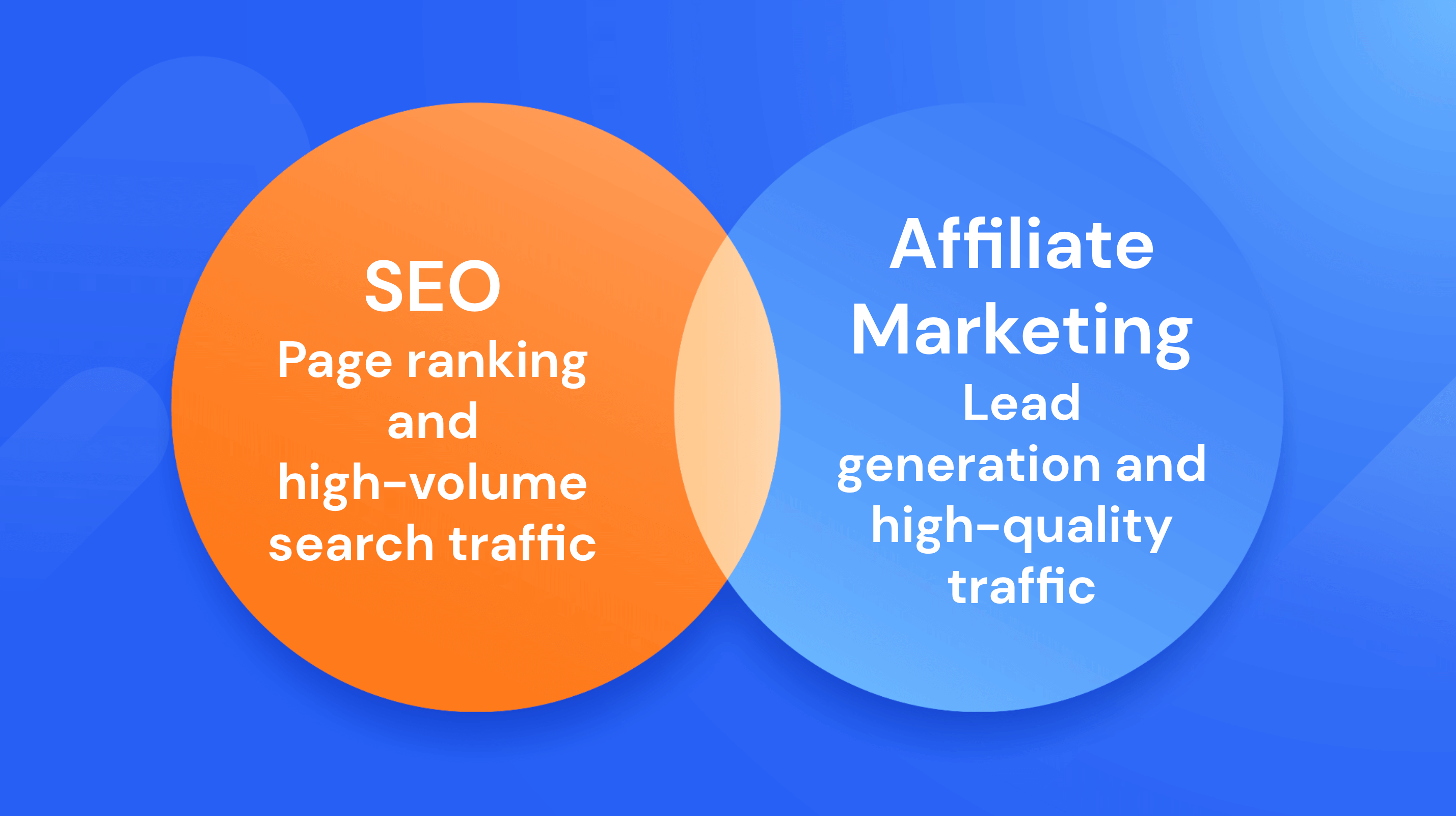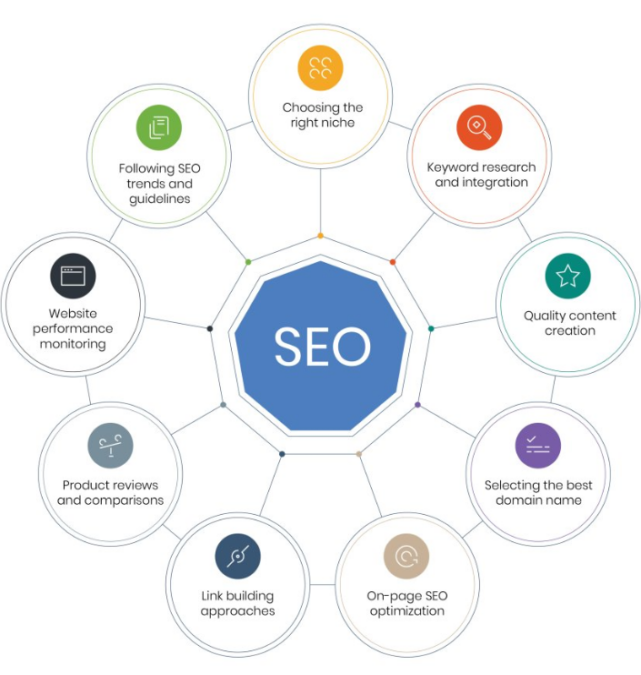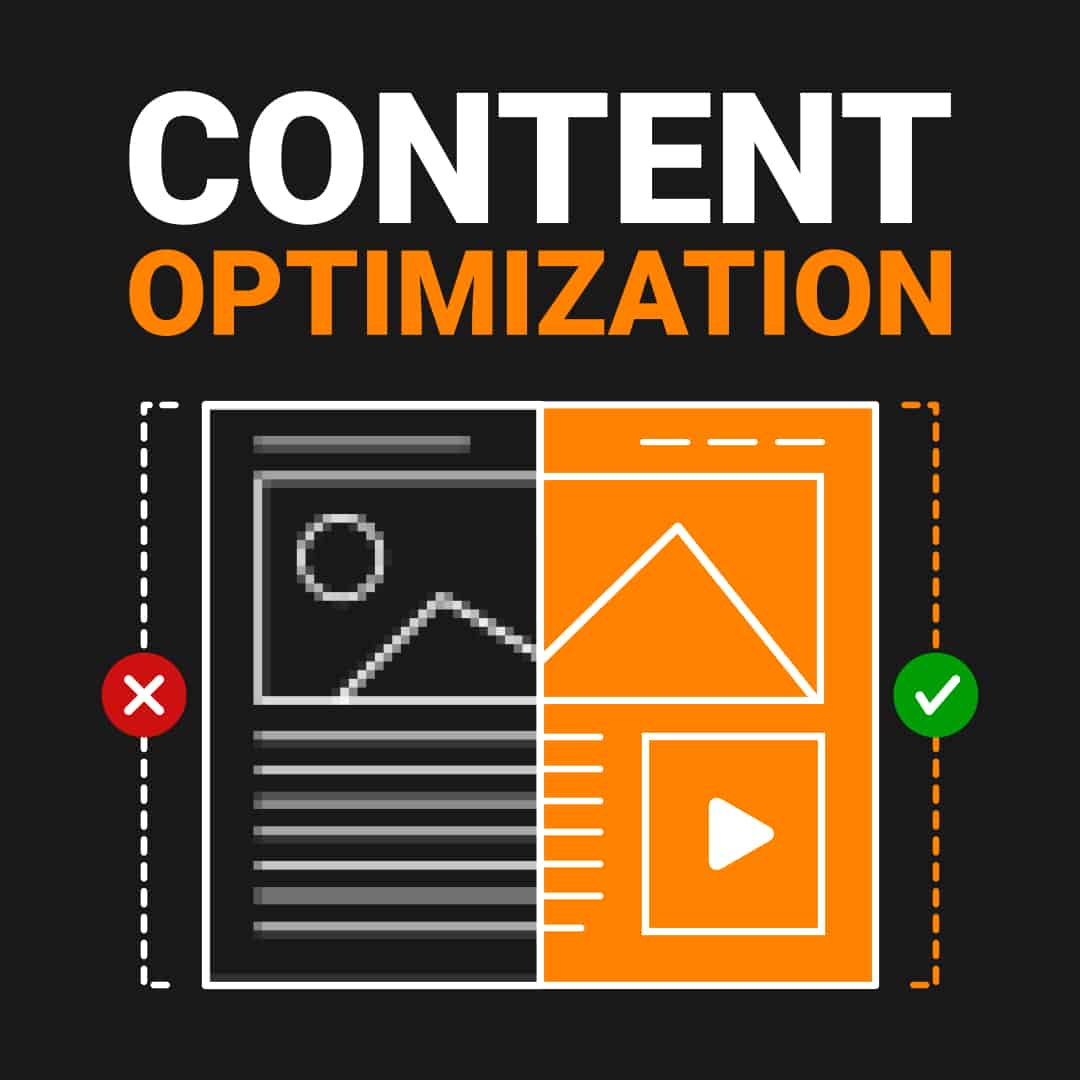Affiliate marketing has become a lucrative avenue for earning online income, but succeeding in this competitive field requires more than just signing up for affiliate programs and promoting products. Search Engine Optimization (SEO) is a powerful strategy to enhance your online presence, attract targeted traffic, and maximize affiliate marketing revenue. Here’s a detailed guide on using SEO effectively for affiliate marketing.
Link between SEO & Affiliate Marketing

SEO helps your web page and content to rank higher in search engine results pages (SERPs). If users search for your targeted keyword, and your page ranks on top then it will get more traffic, better authority, and increased conversions (traffic to sales). For affiliate marketers, SEO is critical because it helps draw in the right audience—those actively searching for products or solutions you promote.
Benefits of SEO for Affiliate Marketing:

- Cost-Effective Traffic: Organic traffic is free, unlike paid ads.
- Trust and Credibility: High-ranking sites are perceived as trustworthy.
- A search engine optimized page will get you good & constant traffic over time.
- Targeted Audience: Attract visitors interested in specific products or niches.
Key SEO Strategies to Boost Affiliate Marketing Revenue
1. Keyword Research

Keywords are what users are looking for, and if it doesn’t match then may your content be the best but it will be of no use because it won’t appear on search engines (Google/Bing/Yahoo/etc.). That’s why keyword research in SEO is essential for your affiliate marketing campaigns. Identify terms your target audience uses to find products or services in your niche.
Steps for Keyword Research:
- You can take on Google and start searching for your target keywords. Google will automatically show suggestions. These suggestions are nothing but heavily searched keywords by people. Thus, it gives you an idea on what users are looking for. For current keyword research you can use Google Trends, Google Keyword Planner, and other paid keyword research platforms.
- Focus on long-tail keywords (e.g., “best budget fitness tracker for beginners”) for better conversion rates.
- Analyze competitors to discover profitable keyword opportunities.
2. Content Optimization

Firstly, follow your passion and put it into your content. Next, check whether it has the potential to connect with your audience i.e. does it have engagement metrics like Q&As, tips, call-outs, etc. Lastly, search engines prioritize high-quality content, so prioritize value over promotion.
Tips for Content Creation:
- Write in-depth product reviews, comparisons, and how-to guides.
- Include keywords naturally in titles, headings, and body text.
- Use multimedia like videos, images, and infographics to enrich content.
- Add clear calls-to-action (CTAs) to encourage clicks on affiliate links.
3. Build High-Quality Backlinks

Backlinks from news sites, popular online platforms, top influencers, and other authoritative pages are high-quality ones. They will help improve your position in the search results.
Link-Building Strategies:
- You can tie-up with other publishers, influencers, and various types of content creators for guest posts on relevant topics so it will be a win-win for both. Links to your pages will be included in their content, thus backlink done!
- Use skyscraper content: create better versions of popular content and reach out to sites linking to the original.
- Share your content on forums, communities, and social media to earn organic links.
4. Optimize for On-Page SEO

On-page SEO refers to optimizing individual web pages to rank higher and earn more relevant traffic on search engines. It involves enhancing elements like meta tags, header tags, content, images, and internal links, as well as improving page speed and user experience. The goal is to make each page search-engine-friendly while providing value to users. Thus, helps get better affiliate conversion rates.
Best Practices:
- Meta titles and descriptions should focus on target keywords.
- Header tags like H1, H2, etc. should be used in paragraphing for user-friendly content structure.
- Ensure fast page load times with image compression and caching.
- Create an SEO-friendly URL structure (e.g., “yourdomain.com/best-headphones-2024”).
- Implement internal linking to guide visitors to related posts and keep them on your site longer.
5. Focus on User Experience (UX)

Focusing on User Experience (UX) is crucial for SEO because search engines prioritize websites that are easy to navigate, load quickly, and engage users. A positive UX reduces bounce rates, increases dwell time, and boosts user satisfaction, all of which signal quality to search engines and improve rankings.
Enhancing UX:
- Ensure your site is mobile-friendly and responsive.
- Use clear navigation menus and search functions.
- Minimize pop-ups and intrusive ads.
- Regularly update outdated or irrelevant content.
6. Leverage Local SEO (If Applicable)

If your affiliate products are relevant to a specific location, local SEO can be a game-changer.
Local SEO Tips:
- Add location-based keywords to your content.
- Claim your business on Google My Business for visibility in local searches.
- Get local backlinks from community blogs and directories for added advantage.
- Google Maps is used higher than ever so get local. It also has sponsored postings.
7. Monitor and Analyze Performance

Use analytics tools to track your site’s performance and adjust your strategy as needed.
Essential Tools:
- Google Analytics: Track your user sessions, user behavior, engagement rate, conversions, and many other metrics.
- Google Search Console: Identify indexing issues and track keyword performance.
- Ahrefs or SEMrush: Analyze backlinks and competitors.
Common SEO Pitfalls to Avoid

- Keyword Stuffing: It disrupts readability, provides a poor user experience, and can lead to penalties from search engines, which negatively impact rankings.
- Thin Content: Avoid publishing short, uninformative posts just to include affiliate links.
- Ignoring Mobile Users: Mobile traffic is significant; ensure your site performs well on mobile devices.
- Neglecting Content Updates: Outdated content can harm rankings and credibility.
By leveraging SEO, affiliate marketers can attract a steady stream of organic traffic, improve conversion rates, and build long-term revenue streams. The key is to stay consistent, focus on delivering value, and adapt your strategy based on analytics. With patience and effort, SEO can become a cornerstone of your affiliate marketing success.

Sahil Ajmera is content writer with more than 7 years of work experience in field of Affiliate Marketing, Digital Marketing, etc. He loves saving money on everything. His aim is to get readers exactly what they are looking for and that too without wasting much of their time. Whatever he is writing on, you are sure to find a way to earn & save good!


